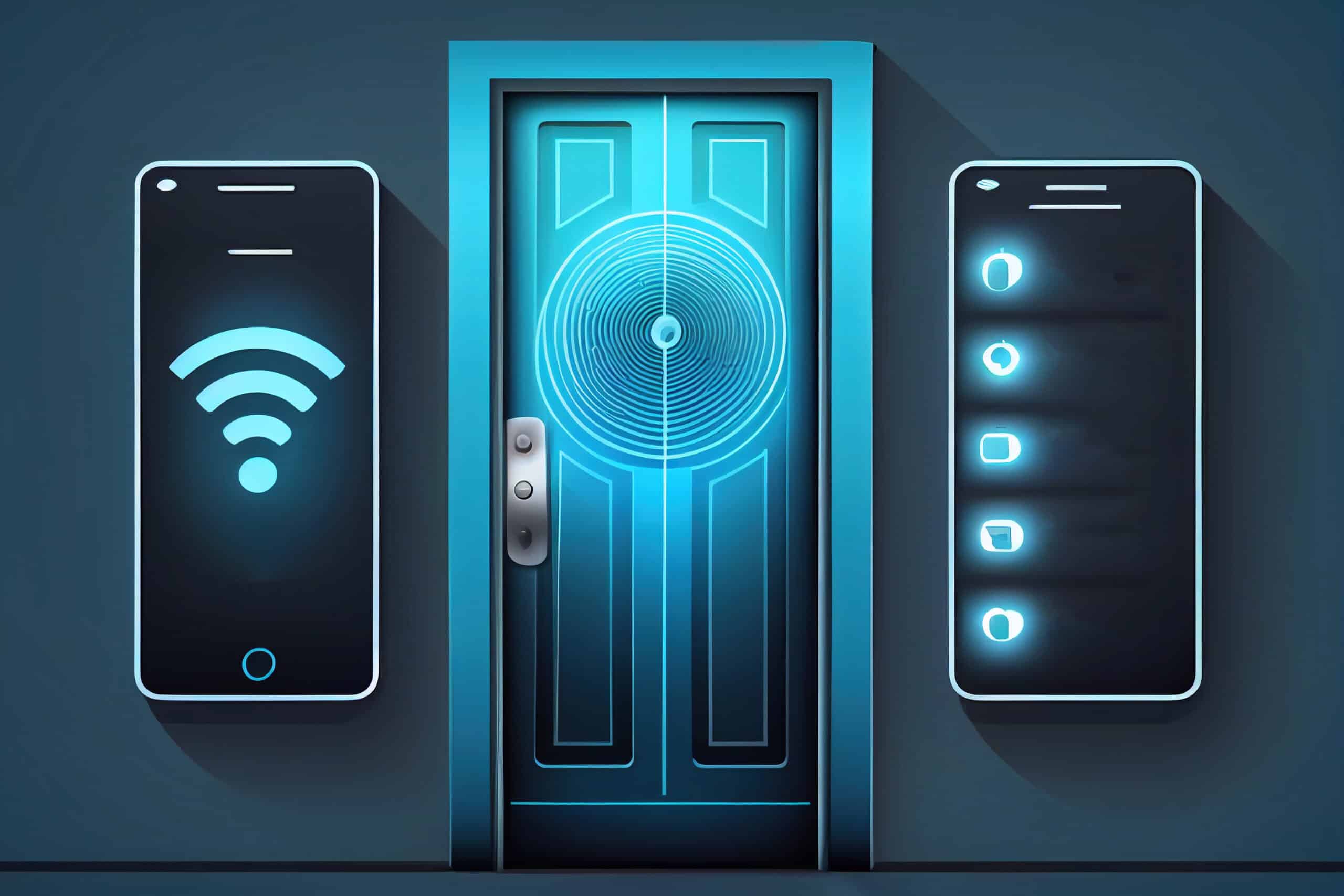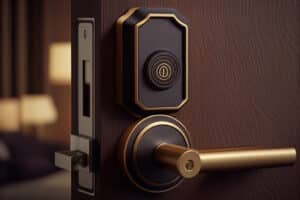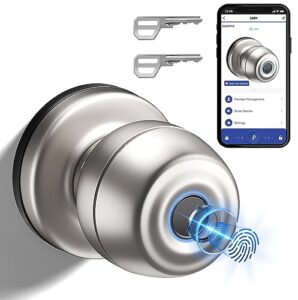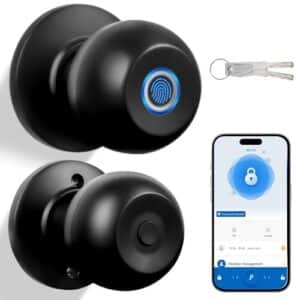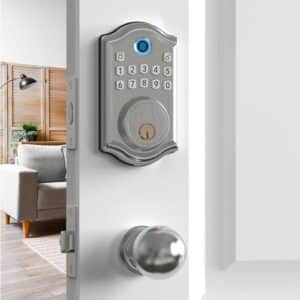How Secure Are Smart Door Locks?
Key Takeaways
- Smart door locks offer encryption, two-factor authentication, and tamper alerts as key security features to prevent unauthorized access and protect against potential intruders.
- Potential vulnerabilities in some smart lock models include interception of network traffic, lack of over-the-air firmware updates, and exploitable key generation algorithms.
- Choosing a reputable brand, regularly updating firmware, and conducting thorough research are recommended to ensure optimal security when selecting a smart door lock.
Smart door locks have gained popularity in recent years, offering convenience and enhanced security for homeowners. However, as with any technology, concerns about the security of these devices have been raised. In this article, we will explore the security features of smart door locks, potential vulnerabilities, and provide an objective assessment of their overall security.
Security Features of Smart Door Locks
Smart door locks are designed to provide an additional layer of security for your home. They often come with advanced features such as encryption, two-factor authentication, and tamper alerts. These features are intended to prevent unauthorized access and protect your home from potential intruders.
Encryption is a key security feature of smart door locks. It ensures that the communication between the lock and the mobile app is secure and cannot be intercepted by hackers. Two-factor authentication adds an extra layer of protection by requiring a second form of verification, such as a fingerprint or a unique code, to unlock the door. Tamper alerts notify homeowners if someone attempts to tamper with or force open the lock.
Reputable brands often prioritize security and regularly update the lock’s firmware to address any potential vulnerabilities that may arise. Regular firmware updates are essential to ensure optimal security and protect against emerging threats.
Potential Vulnerabilities
While smart door locks offer enhanced security, it’s important to acknowledge that no technology is entirely foolproof. Researchers have identified potential vulnerabilities in some smart lock models that could be exploited by hackers.
One vulnerability involves the interception of network traffic between the lock and the mobile app. Hackers may be able to gain unauthorized access and remotely unlock doors by exploiting this security flaw. However, it’s worth noting that this vulnerability is not present in all smart lock models.
Another concern is the lack of over-the-air firmware updates for certain smart lock models. This means that fixing vulnerabilities may require physically updating the lock’s firmware, making it more challenging for homeowners to address security issues promptly.
One specific issue lies with the key generation algorithm used in some smart locks. Attackers can potentially exploit this algorithm, compromising the security of the lock. However, it’s important to note that this vulnerability is not present in all smart locks and may vary depending on the brand and model.
An Objective Assessment
Based on the information available, it is clear that smart door locks offer additional security features that can help protect your home. Encryption, two-factor authentication, and tamper alerts are valuable tools in preventing unauthorized access and deterring potential intruders.
However, it is essential to choose a reputable brand that prioritizes security and regularly updates the lock’s firmware. Regular firmware updates are crucial to addressing any potential vulnerabilities that may arise and ensuring optimal security.
While some vulnerabilities have been identified in specific smart lock models, it’s important to remember that these vulnerabilities may not be present in all models and can vary across brands. It is recommended to conduct thorough research and consult with experts before selecting a smart door lock for your home.
Ultimately, the security of a smart door lock depends on the specific brand, model, and the actions taken by the homeowner to maintain security. By selecting a reputable brand, regularly updating firmware, and following best practices for securing smart home devices, homeowners can enjoy the convenience and added security that smart door locks provide.
Related Websites:
FAQs:
Q: What are the benefits of using smart door locks?
Smart door locks offer convenience, allowing you to lock and unlock your door remotely using a smartphone. They also provide enhanced security features such as encryption, authentication, and remote monitoring for added peace of mind.
Q: Are smart door locks secure?
Yes, smart door locks can be highly secure when properly chosen and used. They incorporate encryption technology and authentication methods to prevent unauthorized access. Additionally, they are built with physical security features and resistance to tampering or forced entry.
Q: What are the vulnerabilities and risks associated with smart door locks?
While smart door locks are generally secure, there are potential vulnerabilities to consider. Common concerns include hacking, power outages, or system failures. However, choosing reputable brands, keeping software up to date, and integrating with complementary security systems can help mitigate these risks.
Q: How do I choose a secure smart door lock?
To choose a secure smart door lock, it is important to select reputable brands with a strong manufacturer reputation. Regular software updates are crucial as they address security vulnerabilities. Additionally, consider integrating the smart door lock with other security systems for enhanced protection.
Q: Can smart door locks be integrated with other security systems?
Yes, smart door locks can be integrated with other security systems such as alarms or cameras. This integration enhances overall security by providing a comprehensive solution for monitoring and protecting your home or property.

